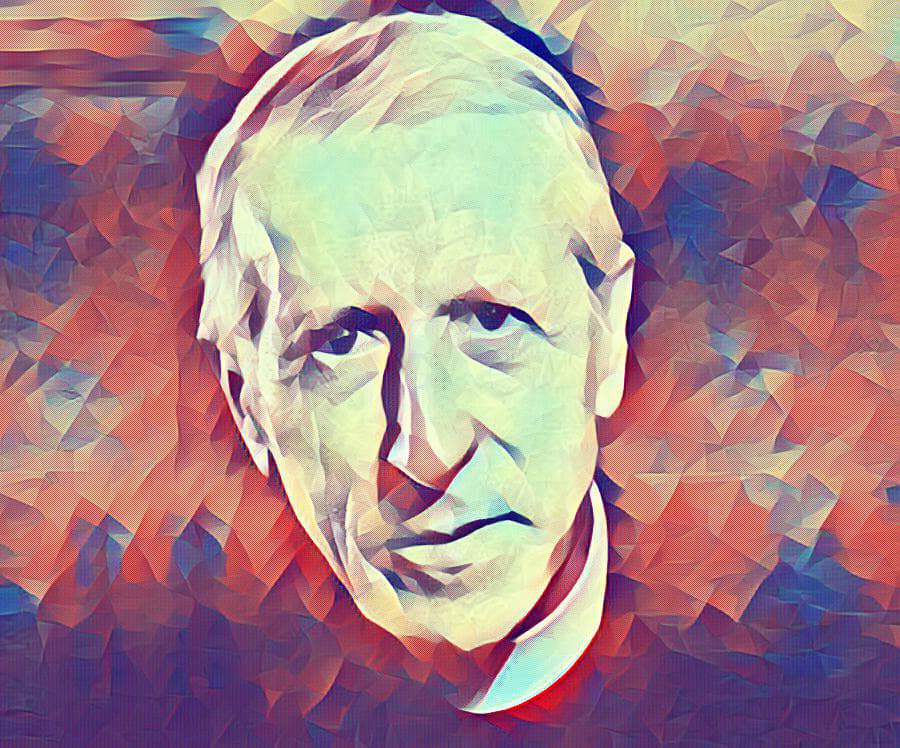Pasolini once wrote that theology is one of the branches of fantastic literature. We will reserve this assertion for the theology-fiction of Pierre Teilhard de Chardin (1881-1955). Despite eleven condemnations by the Church, which silenced him because of the “serious attacks on Catholic doctrine” developed in his books, his theology enjoyed incredible success in the 1950s and especially the 1960s, supported by the Society of Jesus. Even good souls were seduced by its lyrical prose, full of neologisms and appealing, if bizarre, poetic flights of fancy. His euphoric project of reconciling modern science and faith was very much in the spirit of a time bathed in optimism against a backdrop of technological advances.
And yet, not only are the Jesuit’s theses devoid of scientific credibility, they are also contrary to the most elementary truths of faith. This is what Wolfgang Smith demonstrates at length in a very insightful work. Smith is both an inspired philosopher and a leading scientist, physicist and mathematician, who has taught at the prestigious Massachusetts Institute of Technology (MIT). Teilhard was a paleontologist of no particular genius, incompetent in both biology and physics, and the knowledge he gained from his profession (the discovery of fossils) had no connection with his ideological construction, as he acknowledged in his correspondence. This explains why his theses were criticized by renowned scientists.
Teilhard’s intention was to reintroduce God into a scientific vision dominated by evolution. He made no secret of his intention to re-found Christianity—an “improved Christianity,” an “ultra-Christianity,” a “meta-Christianity,” as he put it—on new foundations. The universe was conceived in a pantheistic mode: “There is in the World neither Spirit nor Matter; the Fabric of the Universe is Spirit-Matter.” According to a great “law of Complexity of Consciousness,” “everything that exists is Matter that becomes Spirit.” For him, the doctrine of creation ex nihilo is contradicted by the “temporo-spatial enormity,” the “energetic immensities,” and the “unfathomable organic connections of the phenomenal World.” For Teilhard, “grace represents physical over-creation. In other words, it is properly biological in nature.”
We must also abandon our conception of a God above time: “Around us and within us, by the encounter of his Attraction and our Thought, God is in the process of ‘changing’… By the rise of the Cosmic Quantity of Union, his radiance, his hue are enriched!” Rejecting the law of the universe’s increasing entropy, Teilhard asserts that everything converges irresistibly towards an “Omega Point,” which is none other than the cosmic Christ.
One of the stumbling blocks between Teilhard’s vision and Church teaching is the dogma of original sin. In what is perhaps the most fascinating chapter of his book, Wolfgang Smith explains how Adam’s Fall fits into a different representation of origins than the Jesuit’s: ” it is this primordial catastrophe—and not a Darwinist ascent—that is responsible for the human condition as we know it today.” On the contrary, for Teilhard, evil is simply disorder caused by natural processes. This conception led him to an astonishing relativization of man’s sinfulness. His “neo-humanist” political vision is based on the phenomenon of “socialization,” aggregation through collectivization, which brought him to a singular complacency to Nazi and Communist totalitarianism. In 1938, he wrote: “I do not know where to fix my sympathies, at the present time: where is there more hope and ideal at present? In Russia, or in Berlin?”
In the end, all the truths of faith are reinterpreted in his own way, as best he can, or, in the case of the most troublesome, abandoned.
We recommend this book to all Teilhardardians, and in particular to the Jesuits, who have just opened a Centre Pierre Teilhard de Chardin on the Plateau de Saclay [the European Silicon Valley], with the ambition of making it “a space for dialogue between science, philosophy and spirituality.” It would have been preferable to choose better sponsor.
Denis Sureau is the editor of the review Transmettre and the bi-monthly newsletter Chrétiens dans la Cité. He is the author of Pour une nouvelle théologie politique. This article comes through the kind courtesy of La Nef.
